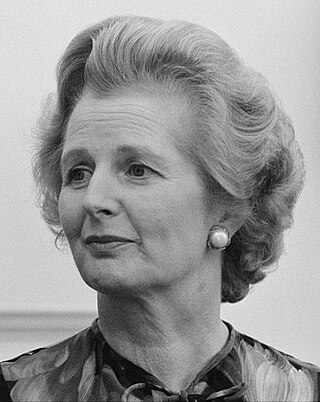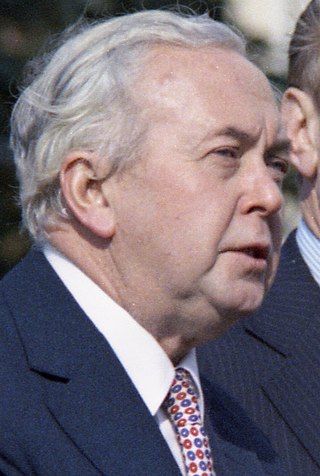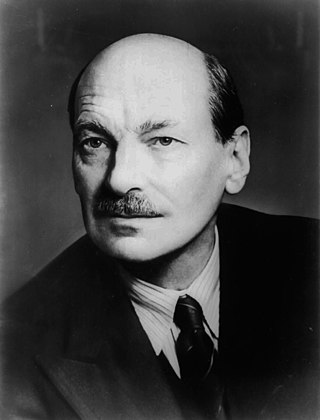This is a list of the British Labour Party general election manifestos since the nascent party first fielded candidates at the 1900 general election.
From its foundation, general election manifestos were issued for the Labour Party as a whole, whereas the manifestos of the Conservative and Liberal parties generally took the form of a form of a short personal address by the leader of the party until the 1950s.
| Election | Leader | Election winner | Manifesto title | Link to text |
|---|---|---|---|---|
| 2024 | Keir Starmer | Labour | Change | |
| 2019 | Jeremy Corbyn | Conservative | It's Time for Real Change | |
| 2017 | Jeremy Corbyn | Hung (Conservative with DUP confidence & supply) | For the Many, Not the Few | |
| 2015 | Ed Miliband | Conservative | Britain Can Be Better | |
| 2010 | Gordon Brown | Hung (Conservative-led coalition) | A Future Fair for All | |
| 2005 | Tony Blair | Labour | Britain Forward, Not Back | |
| 2001 | Tony Blair | Labour | Ambitions for Britain | |
| 1997 | Tony Blair | Labour | New Labour: Because Britain Deserves Better | |
| 1992 | Neil Kinnock | Conservative | It's Time to Get Britain Working Again | |
| 1987 | Neil Kinnock | Conservative | Britain Will Win with Labour | |
| 1983 | Michael Foot | Conservative | The New Hope for Britain | |
| 1979 | James Callaghan | Conservative | The Labour Way Is the Better Way | |
| October 1974 | Harold Wilson | Labour | Britain Will Win with Labour | |
| February 1974 | Harold Wilson | Hung (Labour) | Let Us Work Together – Labour's Way Out of the Crisis | |
| 1970 | Harold Wilson | Conservative | Now Britain's Strong – Let's Make It Great to Live In | |
| 1966 | Harold Wilson | Labour | Time for Decision | |
| 1964 | Harold Wilson | Labour | The New Britain | |
| 1959 | Hugh Gaitskell | Conservative | Britain Belongs to You | |
| 1955 | Clement Attlee | Conservative | Forward with Labour | |
| 1951 | Clement Attlee | Conservative | Labour Party Election Manifesto | |
| 1950 | Clement Attlee | Labour | Let Us Win Through Together | |
| 1945 | Clement Attlee | Labour | Let Us Face the Future | |
| 1935 | Clement Attlee | National Government | The Labour Party's Call to Power | |
| 1931 | Arthur Henderson | National Government | Labour's Call to Action | |
| 1929 | Ramsay MacDonald | Hung (Labour) | Labour's Appeal to the Nation | |
| 1924 | Ramsay MacDonald | Conservative | Labour's Appeal to the People | |
| 1923 | Ramsay MacDonald | Hung (Labour) | Labour's Appeal to the Nation | |
| 1922 | J. R. Clynes | Conservative | Labour's Call to the People | |
| 1918 | William Adamson | Hung (Conservative-dominated coalition) | Labour's Call to the People | |
| December 1910 | George Barnes | Hung (Liberal with Irish Nationalist support) | December 1910 Labour Party General Election Manifesto | |
| January 1910 | Arthur Henderson | Hung (Liberal with Irish Nationalist support) | January 1910 Labour Party General Election Manifesto | |
| 1906 | Keir Hardie | Liberal | 1906 Labour Party General Election Manifesto | |
| 1900 | Conservative | 1900 Labour Party General Election Manifesto |

The 1979 United Kingdom general election was held on Thursday 3 May 1979 to elect 635 members to the House of Commons. The election was held following the defeat of the Labour government in a no-confidence motion on 28 March 1979, six months before the Parliament was due for dissolution in October 1979.

The 1983 United Kingdom general election was held on Thursday 9 June 1983. It gave the Conservative Party under the leadership of Margaret Thatcher the most decisive election victory since that of the Labour Party in 1945, with a majority of 144 seats and the first of two consecutive landslide victories.

The October 1974 United Kingdom general election took place on Thursday 10 October 1974 to elect 635 members of the House of Commons. It was the second general election held that year; the first year that two general elections were held in the same year since 1910; and the first time that two general elections were held less than a year apart from each other since the 1923 and 1924 elections, which took place 10 months apart.

The 1945 United Kingdom general election was a national election held on Thursday 5 July 1945, but polling in some constituencies was delayed by some days, and the counting of votes was delayed until 26 July to provide time for overseas votes to be brought to Britain. The governing Conservative Party sought to maintain its position in Parliament but faced challenges from public opinion about the future of the United Kingdom in the post-war period. Prime Minister Winston Churchill proposed to call for a general election in Parliament, which passed with a majority vote less than two months after the conclusion of the Second World War in Europe.

The 1964 United Kingdom general election was held on Thursday 15 October 1964. It resulted in the Conservatives, led by incumbent Prime Minister Alec Douglas-Home, narrowly losing to the Labour Party, led by Harold Wilson; Labour secured a parliamentary majority of four seats and ended its thirteen years in opposition since the 1951 election. Wilson became the youngest Prime Minister since Lord Rosebery in 1894.

The 1966 United Kingdom general election was held on Thursday 31 March 1966. The result was a landslide victory for the Labour Party led by incumbent Prime Minister Harold Wilson.

The 1950 United Kingdom general election was the first to be held after a full term of a majority Labour government. The general election was held on Thursday 23 February 1950, and was also the first to be held following the abolition of plural voting and university constituencies. The government's lead over the Conservative Party shrank dramatically, and Labour was returned to power but with an overall majority significantly reduced from 146 to just 5. There was a 2.8% national swing towards the Conservatives, who gained 90 seats. Labour called another general election the following year, which the Conservative Party won, returning Churchill to government after six years in opposition.

The 1951 United Kingdom general election was held twenty months after the 1950 general election, which the Labour Party had won with a slim majority of just five seats. The Labour government called a snap election for Thursday 25 October 1951 in the hope of increasing its parliamentary majority.

The 1959 United Kingdom general election was held on Thursday, 8 October 1959. It marked a third consecutive victory for the ruling Conservative Party, now led by Prime Minister Harold Macmillan. For the second time in a row, the Conservatives increased their overall majority in Parliament, this time to a landslide majority of 100 seats, having gained 20 seats for a return of 365. The Labour Party, led by Hugh Gaitskell, lost 19 seats and returned 258. The Liberal Party, led by Jo Grimond, again returned only six MPs to the House of Commons, but managed to increase its overall share of the vote to 5.9%, compared to just 2.7% four years earlier.

The 1935 United Kingdom general election was held on Thursday 14 November. It resulted in a second landslide victory for the three-party National Government, which was led by Stanley Baldwin of the Conservative Party after the resignation of Ramsay MacDonald due to ill health earlier in the year. It is the most recent British general election to have seen any party or alliance of parties win a majority of the popular vote.

The 1924 United Kingdom general election was held on Wednesday 29 October 1924, as a result of the defeat of the Labour minority government, led by Prime Minister Ramsay MacDonald, in the House of Commons on a motion of no confidence. It was the third general election to be held in less than two years. Parliament was dissolved on 9 October.

The 1923 United Kingdom general election was held on Thursday 6 December 1923. The Conservatives, led by Prime Minister Stanley Baldwin, won the most seats, but Labour, led by Ramsay MacDonald, and H. H. Asquith's reunited Liberal Party gained enough seats to produce a hung parliament. It is the most recent UK general election in which a third party won over 100 seats and the most narrow gap, of a "mere" 100 seats, between the first and third parties since. The Liberals' percentage of the vote, 29.7%, trailed Labour's by only one percentage point and has not been exceeded by a third party at any general election since.

The 1922 United Kingdom general election was held on Wednesday 15 November 1922. It was won by the Conservative Party, led by Prime Minister Andrew Bonar Law, which gained an overall majority over the Labour Party, led by J. R. Clynes, and a divided Liberal Party.

The 1900 United Kingdom general election was held between 26 September and 24 October 1900, following the dissolution of Parliament on 25 September. Also referred to as the Khaki Election, it was held at a time when it was widely believed that the Second Boer War had effectively been won.

The 2005 United Kingdom general election was held on Thursday 5 May 2005, to elect 646 members to the House of Commons. The governing Labour Party led by the prime minister Tony Blair won its third consecutive victory, with Blair becoming the second Labour leader after Harold Wilson to form three majority governments. However, its majority fell to 66 seats; the majority it won four years earlier had been of 167 seats. The UK media interpreted the results as an indicator of a breakdown in trust in the government, and especially in Blair.
The Labour Party is a social democratic political party in the United Kingdom that sits on the centre-left of the political spectrum. In a broader sense, the party has been described as an alliance of social democrats, democratic socialists and trade unionists. It is the governing party of the United Kingdom, having won the 2024 general election, and is currently the largest political party by number of votes cast and number of seats in the House of Commons. There have been seven Labour prime ministers and fourteen Labour ministries. The party traditionally holds the annual Labour Party Conference during party conference season, at which senior Labour figures promote party policy.

The 2019 United Kingdom general election was held on Thursday, 12 December 2019, with 47,567,752 registered voters entitled to vote to elect 650 Members of Parliament (MPs) to the House of Commons. The governing Conservative Party led by the prime minister, Boris Johnson, won a landslide victory with a majority of 80 seats, a net gain of 48, on 43.6 per cent of the popular vote, the highest percentage for any party since the 1979 general election, though with a narrower popular vote margin than that achieved by the Labour Party over the Conservatives at the 1997 general election. This was the second national election to be held in 2019 in the United Kingdom, the first being the 2019 European Parliament election.